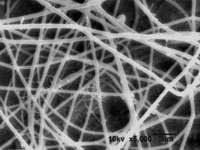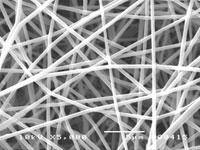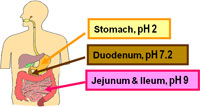The current nanotechnology research interests within the Department are electrospinning of biomaterials, which include fabrication of novel biomaterials for in vivo controlled release applications as well as novel approach to electrospinning of biopolymers. Attention has also been on the study of controlled release for other more general food applications.
Currently, our works have been conducted in close collaborations with top-tier international researchers from the University of Massachusetts (USA), National Nanotechnology Center (NANOTEC) and Chulalongkorn University. Some examples of the research in food nanotechnology conducted in the Department are as follows:
- Effects of gelatinization transition state of starch granules on the release characteristics for egg albumen-cassava starch composite structure
- Electrospinning of cellulose acetate-egg albumen blend nanofibers and their release characteristics
- Coaxial electrospinning of hollow cellulose acetate nanofibers carrying gelatin-polyehtylene glycol emulsion blend
- Coaxial electrospinning of hollow cellulose acetate nanofibers carrying amoxicillin and its in vitro release characteristics
- Fabrication of bio-fibrous films (e.g., cellulose acetate and zein) and study of their mechanical/physical properties
- Solvent coating: a new effective technique for solving needle clogging problem in electrospinning process




